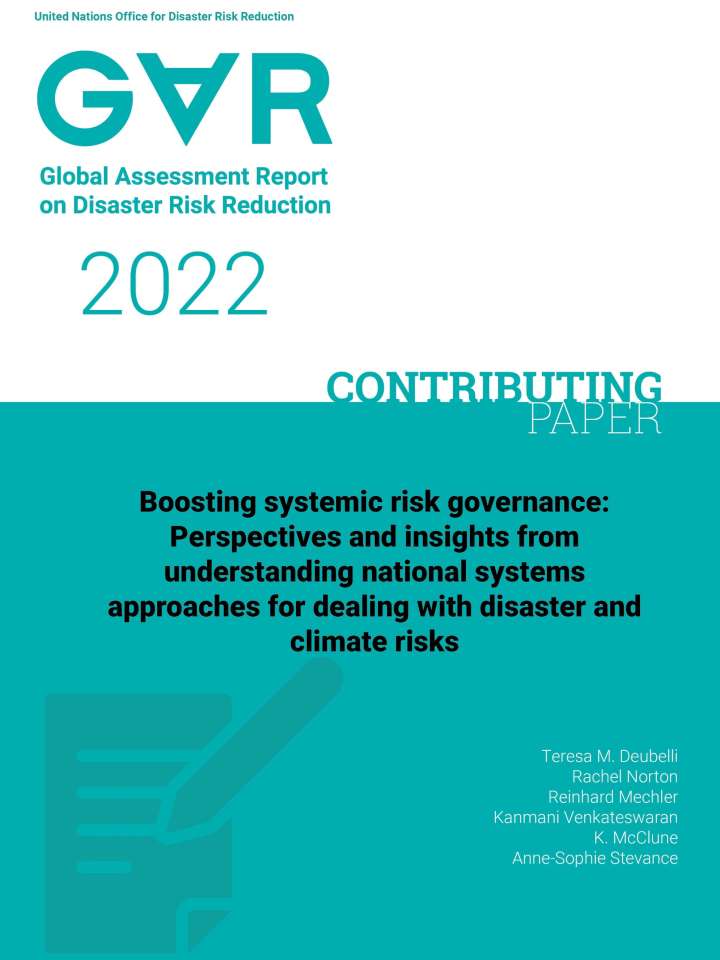Boosting systemic risk governance: Perspectives and insights from understanding national systems approaches for dealing with disaster and climate risks
This contributing paper reviews the governance of systemic risk with the aim to identify opportunities and enabling factors for improving governance by managing what are increasingly interdependent risks with the potential for cascading impacts. The researchers use insights from the joint International Institute for Applied Systems Analysis-International Science Council (IIASA-ISC) “Building pathways to sustainability in a post-COVID world” initiative and forensic reviews of disasters, the Post-Event Review Capability (PERC), to illustrate how sub-national and national systems have governed systemic risks. More specifically, we explore risk governance successes and failures with the goal of developing insights on how to bolster systemic risk governance in policy and practice.
The study indicates that the governance of systemic risks tends is still siloed in spite of the clear need for cross-sectoral and multi-level initiatives. The examples provided from the PERCs and the IIASA-ISC initiative illustrate how single-focus risk governance limits opportunities for building resilience and effectively addressing the systemic nature of risks. They also highlight clear opportunities for shifting towards more systemic risk governance, one where risk is co-managed across institutional boundaries and risk reduction methods are founded on effective and inclusive communication.
